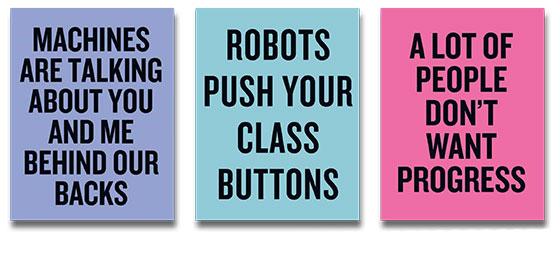Beware the Sirenum silici

Artificial intelligence can already win at poker games, commentate on sports matches and create works of art. Nothing is holding it back in the fields of science either. It's enabling linguists to unravel text corpora, physicists to conjure up new materials, and biochemists to orchestrate hundreds of experiments on the double. It's become so creative there are now prototypes capable of transforming observations into original hypotheses.
(From "Horizons" no. 113 June 2017)
Unlike in some sectors, the prospect of job losses in research isn't yet a source of worry. There is, however, a strong chance that science will never be the same, not to mention the even greater likelihood of being lured in by the call of ever more, ever faster results. If we let ourselves follow the machines' way of thinking, however, we'll be sailing into a perilous trap.
Faced with this, we must continue to chart a course based on sound epistemology. We've seen how computer-generated mathematical proofs supersede our individual abilities to read, verify or even understand them. In principle, the average algorithm proceeds using relatively simple steps; in practice, however, matters are quickly complicated. Results are spewed out in such volumes that it's humanly impossible to follow their 'reasoning', stripping us of all but blind faith. And what use is an opaque result that we don't understand anyway? Furthermore, is science the sum of its results or the sum of its methods?
According to the physicist Richard Feynmann, science is an attitude. "It's a kind of scientific integrity, […] – a kind of leaning over backwards. For example, if you're doing an experiment, you should report everything that you think might make it invalid". It'd be naïve to leave this key step to a computer program. Given that robot researchers are here to stay, we should seize the opportunity instead to spurn algorithmic reasoning. After all, humans' strength is discursive, counterfactual thought. Even unconventional thinking has its place. Let's be frank, there's no comparison between the very soul of science and a pipette-wielding robotic arm.
Daniel Saraga, chief editor